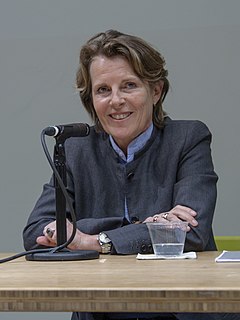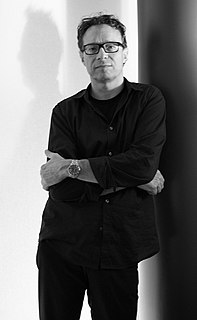A Quote by Santiago Calatrava
I am an engineer, not just an architect, so I've always been motivated by technique or technology. As soon as technology moves just a little bit, it changes architecture.
Related Quotes
I have no opposition at all to technology. I think technology is a wonderful thing that has to be used thoughtfully, and we can't just assume that every bit of new technology improvesthe quality of life; it's really in how the technology is used. What I am very disturbed about is this trend of everything happening faster and faster and faster and there being more and more general noise in the world, and less and less time for quiet reflection on who we are, and where we're going.
It's easy to fall into the trap of assuming that a new technology is very similar to its predecessors. A new technology is often perceived as the linear extension of the previous one, and this leads us to believe the new technology will fill the same roles - just a little faster or a little smaller or a little lighter.
Generally, the technology that enables disruption is developed in the companies that are the practitioners of the original technology. That's where the understanding of the technology first comes together. They usually can't commercialize the technology because they have to couple it with the business model innovation, and because they tend to try to take all of their technologies to market through their original business model, somebody else just picks up the technology and changes the world through the business model innovation.
I am not a technophobe and I am using the latest technology today, some 30-odd years later, and I am really enjoying what some of the new technologies can offer. But at the same time I am always aware that one can get bogged down in that technology and that it can become more than just a method. That's something that you have to be slightly careful of.
People always think of technology as something having silicon in it. But a pencil is technology. Any language is technology. Technology is a tool we use to accomplish a particular task and when one talks about appropriate technology in developing countries, appropriate may mean anything from fire to solar electricity.
Quite often startups were first out of the gate with a sustaining technology. But somehow the leaders got the technology and stayed atop their industries. Sometimes they acquired the startup; sometimes they just developed the technology as a follower and used their muscle and mass to win. But they always won.





































